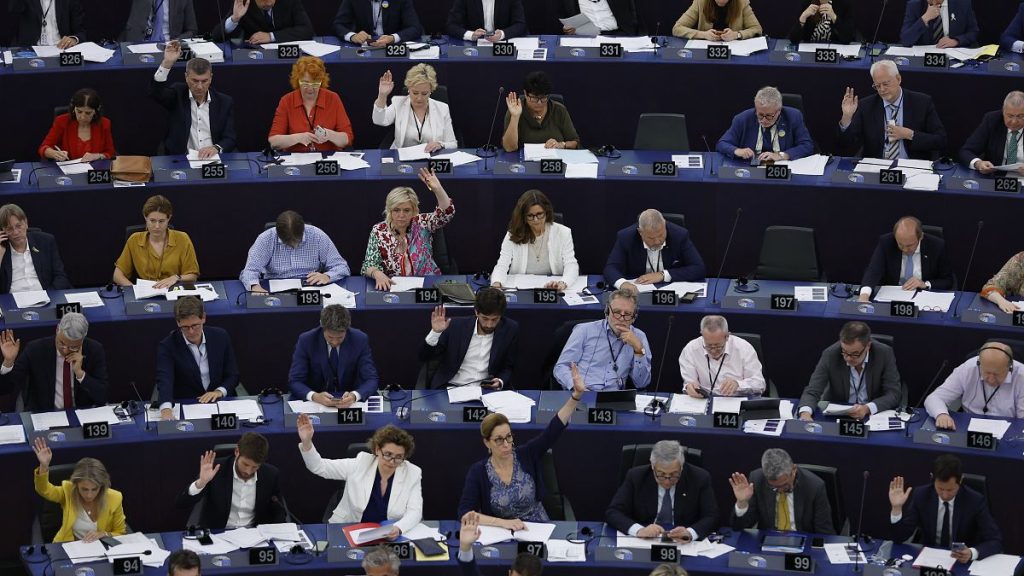The European Parliament achieved its most significant gender equality during the 2019-2024 session, with approximately 280 out of 705 current lawmakers being women. However, concerns have been raised by advocacy groups that this progress may be reversed in the next legislature, especially if more far-right politicians are elected. Far-right party lists tend to be less balanced and have more conservative policies, which could result in a decrease in female representation. While the current European Commission is the most gender-balanced in history and led by a female president, there are calls for reforms within the Parliament to increase the presence of women in influential committees and leadership positions.
Despite advancements in gender equality in the European Parliament, there are still disparities among Member States. Some countries, such as Luxembourg, Finland, and Sweden, have slightly more female lawmakers than male lawmakers, while others, like Romania, Cyprus, and Greece, have less than a quarter of MEPs who are women. To address the gender imbalance, some countries have implemented gender quotas for EU elections, ensuring a minimum share of female candidates on the lists. While some countries have achieved gender equality without quotas, advocates argue that quotas are an effective way to fast-track female representation and ensure women hold positions of influence.
Far-right parties in various European countries have been found to have more men than women on their candidate lists for the European Parliament. This lack of gender balance raises concerns about the future composition of the Parliament and the potential impact on policies. Conservative policies, expected to be promoted by right-wing parties, could reverse the progressive decisions made during the 2019-2024 term, which included EU directives on preventing violence against women and increasing parental leave. Advocacy groups fear that a shift towards more conservative policies could lead to a rollback of women’s rights, including issues such as abortion.
The potential surge of far-right parties in the European Parliament after the next elections raises questions about the content of policies and the impact on gender equality. The European Women’s Lobby advocates for maintaining the advancements made during the 2019-2024 term, which included the appointment of progressive female leaders and the introduction of gender equal policies such as increased parental leave. However, there is a concern that a more conservative Parliament could result in fewer progressive decisions and a risk of backtracking on women’s rights. The composition of the Parliament is likely to change, with right-wing parties gaining seats, which could impact the representation and influence of women within the institution.
Overall, the issue of gender equality in the European Parliament remains a concern for advocacy groups as European citizens go to the polls. The progress made in increasing female representation in the 2019-2024 term could be at risk if more far-right politicians are elected, leading to a decrease in gender balance and potentially more conservative policies. While some countries have implemented gender quotas to ensure female representation, there are disparities among Member States that need to be addressed. The outcome of the next election will determine the future direction of gender equality in the European Parliament and the impact on policies affecting women’s rights.


